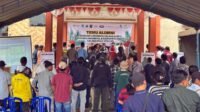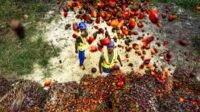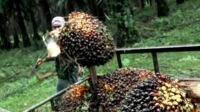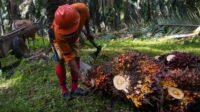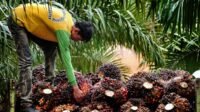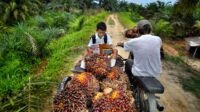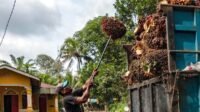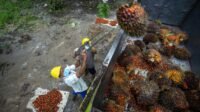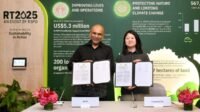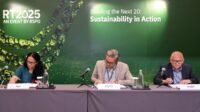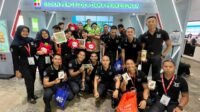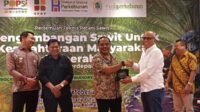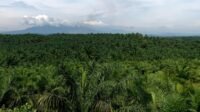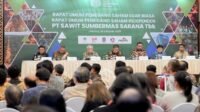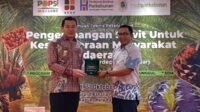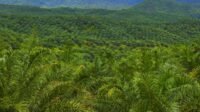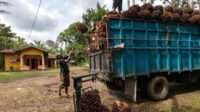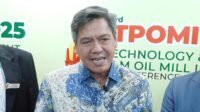PALMOILMAGAZINE, JAKARTA – The Indonesian Sustainable Palm Oil (ISPO) certification scheme is undergoing continuous improvement to encompass the entire palm oil supply chain—from upstream plantation activities to downstream consumer products. This was conveyed by Dida Gardera, Expert Staff for Connectivity and Service Development at the Coordinating Ministry for Economic Affairs, during a recent seminar.
Dida highlighted that several palm oil plantations currently undergoing ISPO certification are still located within forest areas, which raises legal and regulatory concerns. He stressed that land legality remains a critical issue in the certification process.
“Some plantations in the certification process are found to be within forest zones. We need to ensure all data from the Ministry of Forestry, the Ministry of Agrarian Affairs and Spatial Planning/National Land Agency (ATR/BPN), and other relevant institutions are complete and verified. The aim is to ensure these lands fall outside of forest areas and comply with existing regulations,” Dida explained, as quoted by Palmoilmagazine.com during an event in Bandung, mid-July 2025.
He further noted that the strengthening of ISPO certification now extends beyond cultivation practices in plantations. It also covers downstream sectors, including derivative products commonly used by the public, such as cooking oil, shampoo, and soap.
“In the future, ISPO must reflect sustainability across all levels. That includes traceability—knowing where the product comes from, whether it involves women farmers, and understanding its social and environmental impacts,” he said.
Dida also emphasized the urgent need for innovation in Indonesia’s palm oil sector—both in terms of technological advancement and human resource development. These factors are essential for maintaining the industry’s added value and global competitiveness.
“Palm oil is one of Indonesia’s leading commodities. Therefore, we must continue to enhance both our technology and workforce so that the industry can contribute even more to the national economy,” he asserted.
During the event, Dida expressed his appreciation for forums that focus on sustainability and strengthening the palm oil industry. He believes such platforms should be held regularly to improve coordination among stakeholders.
Regarding international trade relations, particularly with the United States, Dida stated that the Indonesian government remains proactive in dialogue and is prepared for various scenarios.
“We continue to communicate within the framework of international trade, including with the United States. While we await their official stance, Indonesia is ready to face any possibilities,” he concluded. (P2)





